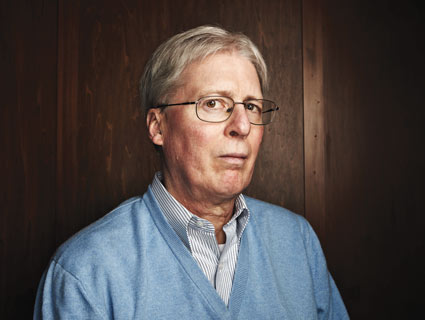
A National Book Award Finalist for Nonfiction, 2018, “We the Corporations” chronicles the revelatory story of one of the most successful, yet least known, “civil rights movements” in American history.

“This is a brilliant, beautifully written book on a topic affecting almost every area of law…the book is filled with new insights and information. Any future discussion of rights for corporations will be shaped by this wonderful book.” – Erwin Chemerinsky, dean and Raymond Pryke Professor of First Amendment Law, University of California, Irvine School of Law

We the Corporations reveals how American businesses won equal rights and transformed the Constitution to serve the ends of capital. Corporations – like minorities and women – have had a civil rights movement of their own, and now possess nearly all the same rights as ordinary people. Uncovering the deep historical roots of Citizens United, Adam Winkler shows how that controversial 2010 Supreme Court decision was the capstone of a two-hundred-year battle over corporate personhood and constitutional protections for business.
Bringing to resounding life the legendary lawyers and justices involved in the corporate rights movement – among them Daniel Webster, Roger Taney, Lewis Powell, and even Thurgood Marshall – Winkler’s tour de force exposes how the nation’s most powerful corporations gained our most fundamental rights and turned the Constitution into a bulwark against the regulation of big business.
*****Final Results*****
On March 14, 2019, the club met on “We the Corporations.” The final ratings, on a five-point scale, are as follows:
Readability – 4.29
Content – 4.571
Overall – 4.429
Comments include:
“Tough on audio [due to academic content], probably much better with a physical copy.”
“Really interesting material.”
“Great choice – Great book.”
“Love the history and the law!”
Some of the Players:

Bosses of the Senate 
Daniel Webster 
Justice Stephen J. Field 
Justice Oliver Wendell Holmes 
Roscoe Conkling 
Justice Thurgood Marshall 
Chief Justice Roberts is reshaping the Court 
Southern Pacific Railraod 
William Blackstone

Justice Samuel Alito




Download Citizens United v. Federal Election Comm., 558 U.S. 310 (2010):


Discussion Questions:
1). At first glance “We the Corporations” appears to be a book that is critical of corporations. The substance of the book, however, delves into the history of corporations in the United States and the corporate role in the establishment of civil liberties.It could be said the book is more pro-business than anti-business. Do you agree?

2). What is a corporation? Did reading this book change your conception of corporations? Are corporations “people” under the Constitution?

3). How did knowledge of corporate structure and practices shape early American history?

4). The author weaves quite a bit of legal history into his work. Did this add or subtract from its quality?

5). Winkler’s chief contribution is to show how corporations have been some of the most important innovators in American law. Why is this? Has the innovation been for good or ill?
6). Is there a way to reconcile First Amendment rights with campaign reform? Is corporate money influence the price democracy must pay for freedom of expression?
7). Finally, did you like the book? Would you recommend it?
About the Author:

